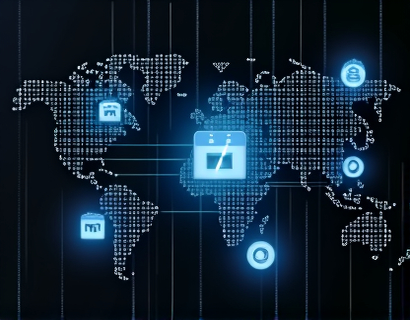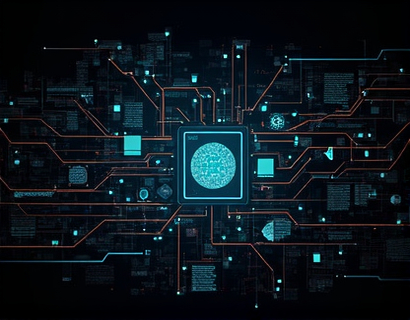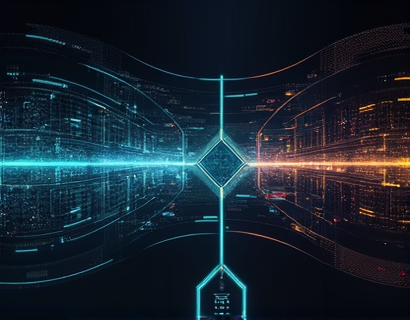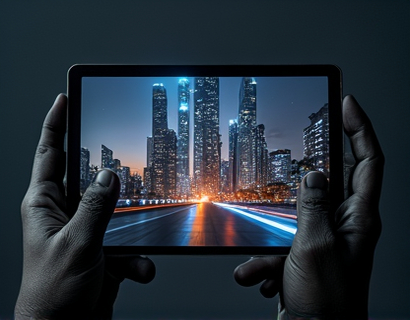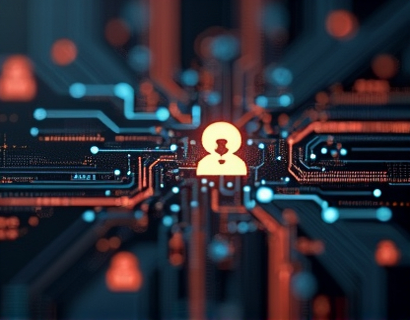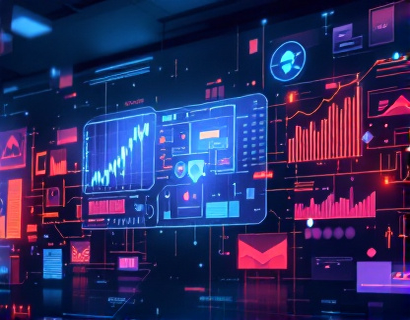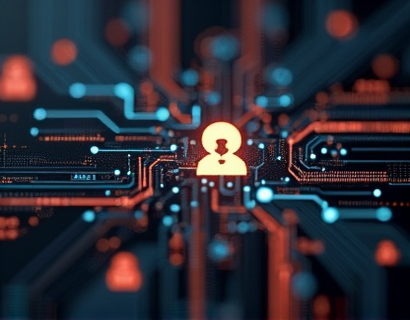Revolutionizing User Engagement: The Convergence of Crypto and AI in Intelligent App Ecosystems
The integration of cryptocurrency and artificial intelligence (AI) is ushering in a new era of digital innovation, particularly in the realm of app ecosystems. This convergence is not just a technological advancement but a transformative shift that is redefining user engagement and driving growth across various sectors. By leveraging the unique strengths of both technologies, developers and businesses can create more interactive, secure, and personalized digital experiences. This article delves into the synergy between crypto and AI, exploring how these cutting-edge technologies are reshaping the digital landscape and fostering innovation.
The Intersection of Cryptocurrency and AI
Cryptocurrency, since its inception with Bitcoin in 2009, has evolved beyond a mere digital currency. It has become a foundational technology with applications in various domains, including finance, supply chain, and identity verification. AI, on the other hand, has made significant strides in areas such as machine learning, natural language processing, and predictive analytics. When these two technologies intersect, the potential for innovation becomes immense.
The combination of blockchain's decentralized and transparent nature with AI's ability to process and analyze vast amounts of data creates a powerful synergy. Blockchain provides a secure and trustless environment for AI algorithms to operate, ensuring data integrity and reducing the risk of fraud. Conversely, AI can enhance the functionality and efficiency of blockchain-based systems by optimizing processes and providing insights that were previously unattainable.
Enhancing User Interactions through AI-Driven App Ecosystems
One of the most significant impacts of this convergence is the enhancement of user interactions within app ecosystems. Traditional apps often struggle to provide a seamless and personalized user experience due to the limitations of centralized data storage and processing. By integrating AI and blockchain, developers can create intelligent app ecosystems that adapt to user behavior and preferences in real-time.
For instance, AI algorithms can analyze user data to identify patterns and predict future actions, enabling apps to offer tailored recommendations and services. This level of personalization not only improves user satisfaction but also increases engagement and retention. Moreover, AI can facilitate more intuitive and natural interactions, such as voice commands and gesture recognition, making apps more accessible and user-friendly.
Security and Trust in AI-Powered App Ecosystems
Security is a paramount concern in the digital world, and the integration of blockchain and AI addresses many of the vulnerabilities associated with traditional systems. Blockchain's immutable ledger ensures that data transactions are secure and tamper-proof, while AI can detect and mitigate potential threats in real-time.
Smart contracts, self-executing contracts with the terms directly written into code, can automate and enforce agreements without the need for intermediaries. AI can enhance the security of smart contracts by identifying and preventing vulnerabilities, ensuring that transactions are executed as intended. This combination not only boosts security but also builds trust among users, a critical factor in the adoption of new technologies.
Decentralized Data Marketplaces
Another innovative application of the crypto-AI synergy is the creation of decentralized data marketplaces. In these platforms, users can monetize their data by selling it to businesses and researchers, all facilitated by blockchain technology. AI plays a crucial role in this ecosystem by valuing and matching data based on its relevance and demand.
This model not only empowers users by giving them control over their data but also provides businesses with access to high-quality, verified data. The use of AI in data processing and analysis further enhances the value of the data marketplace, making it a win-win scenario for all participants. This decentralized approach to data management is a significant step towards a more equitable and transparent digital economy.
Enhanced Analytics and Insights
AI-driven analytics are a game-changer for app developers and businesses looking to gain deeper insights into user behavior and preferences. By analyzing large datasets, AI can uncover patterns and trends that would be impossible to detect manually. This data-driven approach allows for more informed decision-making, leading to better product development and marketing strategies.
In the context of app ecosystems, AI can provide real-time analytics and feedback loops, enabling continuous improvement and optimization. For example, AI can monitor user interactions with specific features, identify areas of friction, and suggest improvements. This iterative process ensures that apps remain relevant and engaging, fostering long-term user loyalty.
Tokenization and Incentivization
Tokenization, a key feature of blockchain technology, can be leveraged to incentivize user engagement within app ecosystems. By issuing utility tokens, developers can reward users for participating in various activities, such as providing data, completing tasks, or referring new users. These tokens can be used within the ecosystem to access premium features, discounts, or other benefits.
AI can optimize the tokenization process by analyzing user behavior and determining the most effective incentive structures. For instance, AI can predict which types of rewards will motivate users the most, ensuring that the token economy is both fair and efficient. This approach not only enhances user engagement but also creates a self-sustaining ecosystem where value is continuously generated and distributed.
Challenges and Considerations
While the potential benefits of integrating crypto and AI in app ecosystems are substantial, there are also challenges and considerations that must be addressed. One of the primary concerns is regulatory compliance. The crypto space is still largely unregulated, and the use of AI adds another layer of complexity. Developers must navigate varying legal frameworks and ensure that their applications meet all necessary requirements.
Another challenge is the technical complexity of integrating these technologies. Developing robust and scalable systems that can handle the demands of AI and blockchain requires expertise in multiple domains. Additionally, ensuring user privacy and data protection is crucial, as the combination of AI and blockchain involves handling sensitive information.
Future Prospects
The future of app ecosystems lies in the continued convergence of cryptocurrency and AI. As these technologies mature, we can expect to see even more innovative applications and use cases. The development of more advanced AI algorithms, combined with the growing adoption of blockchain, will lead to more intelligent, secure, and user-centric digital experiences.
Moreover, the rise of decentralized finance (DeFi) and non-fungible tokens (NFTs) is creating new opportunities for integrating AI in financial and creative domains. AI can enhance the functionality of DeFi platforms by providing sophisticated risk management tools and personalized investment advice. In the creative sector, AI can assist in generating unique NFTs, opening up new avenues for artists and creators.
In conclusion, the synergy between cryptocurrency and AI is revolutionizing user engagement in app ecosystems. By combining the security and transparency of blockchain with the analytical power of AI, developers can create more interactive, personalized, and secure digital experiences. As the tech landscape evolves, the potential for innovation and growth in this space is immense, making it an exciting area to watch and participate in.













